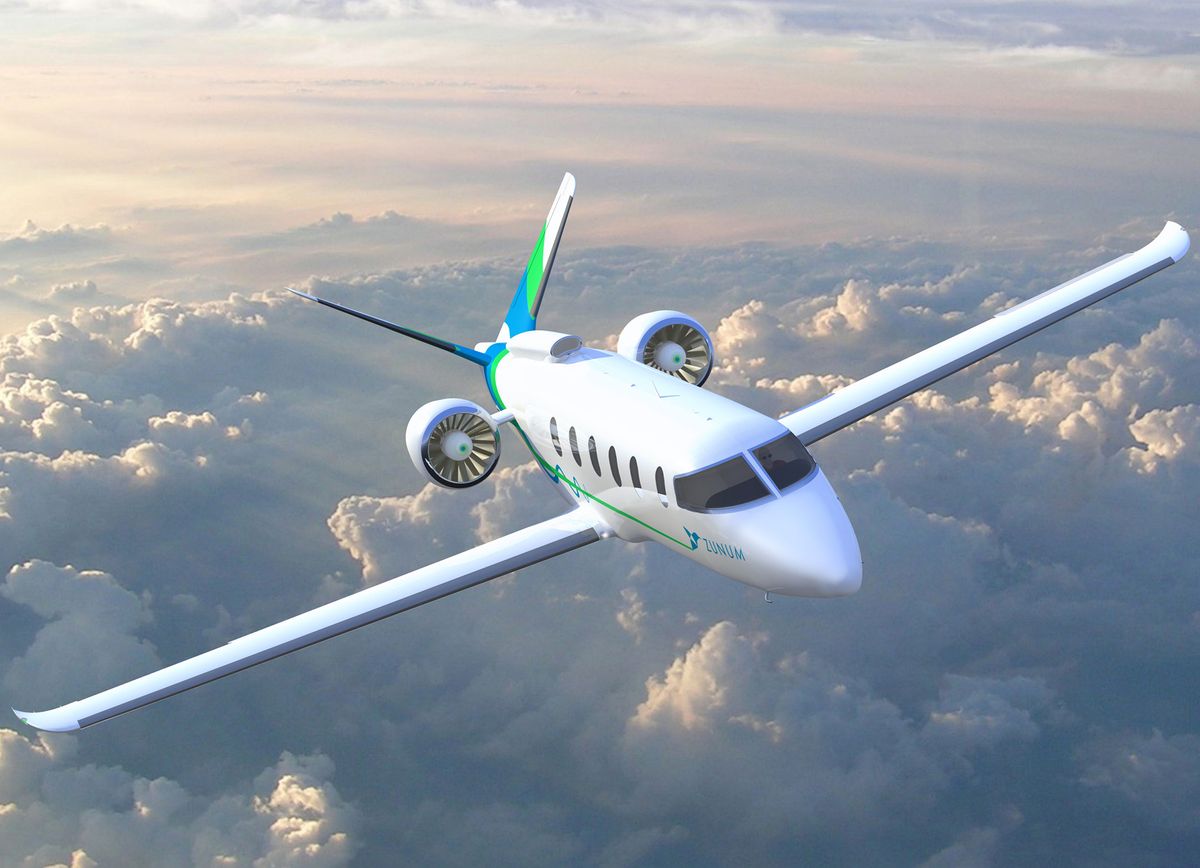The aviation industry has made steady progress in cutting its fuel use and carbon emissions. Planes have become lighter, engines more efficient, and airlines are starting to use biofuel blends and to better manage their traffic flow in order to save money and reduce emissions.
Still, aviation produces about 2 percent of the world’s carbon emissions. To reduce them further, Zunum Aero has a bold plan for a low-carbon flying future. The Kirkland, Wash.-based startup plans to deliver its first hybrid electric plane in 2022.
The company, which came out of stealth in 2017 and has backing from Boeing and JetBlue’s venture capital arms, unveiled details of its aircraft in October. The 12-seater jet will have a range of 700 miles and maximum cruise speed of 340 miles per hour. It will generate 80 percent fewer emissions and produce 75 percent less noise.
Zunum’s business model is based on short commuter flights between small, regional airports. With that strategy in place, they plan to cut costs and door-to-door travel time. Flying from Boston to Washington, D.C. would cost $140 one way, the company predicts, and take around two and a half hours door-to-door, half as long as it takes now.
Zunum isn’t the first company to make a big promise for electric flight. In September, European budget airline EasyJet announced that it is developing a 180-seater electric plane for 2027 with Los Angeles-based Wright Electric. Slovenian manufacturer Pipistrel has been selling Alpha Electro, a commercial electric aircraft for pilot training, since 2015.
Bye Aerospace in Englewood, Colo. has built a two-seater electric airplane similar to the Alpha Electro for pilot training, and it’s expected to cost less than a Cessna of that size. Both Boeing and Airbus have experimented with electric propulsion. NASA is also interested in electric aviation and is working on its X-57 electric airplane.
But while most of these companies are banking on huge advances in battery or fuel cell technologies, Zunum has chosen the hybrid route. Today’s batteries are still too large and heavy for an all-electric aircraft with the size and range the company wants, says Waleed Said, Zunum Aero’s CTO of Power. The Alpha Electro, for instance, has a range of about 80 miles.
Zunum’s airplane design has a “series hybrid” powertrain: propulsion is electric, with only an electric motor powering the drivetrain, but the engine extends the battery’s range by generating power for the motor. Most hybrid electric cars, by contrast, use parallel hybrid or series-parallel hybrid powertrains.
The airplane will use a 1 megawatt battery. Said says the company is currently testing batteries used in hybrid trucks and ships, but is not wedded to a specific battery technology. “We’re trying to be battery independent and are designing the airplane to accept the most efficient, safest, and lightest battery available in 2022,” he says.
Zunum’s engineers are now focused on making the aircraft super-efficient. That means including the obvious features such as lightweight parts, a composite airframe, and a sleek shape. But the engineers are also devising ways to use waste heat from the engine to heat the cabin or de-icing systems, and using the motor’s wind-milling action to recharge the battery during periods of slow flight or on a descent (akin to regenerative braking in cars).
Zunum will begin flight tests by 2019. By 2030, the company plans to develop 50-seater airplanes with a 1,000 mile range.
Prachi Patel is a freelance journalist based in Pittsburgh. She writes about energy, biotechnology, materials science, nanotechnology, and computing.



